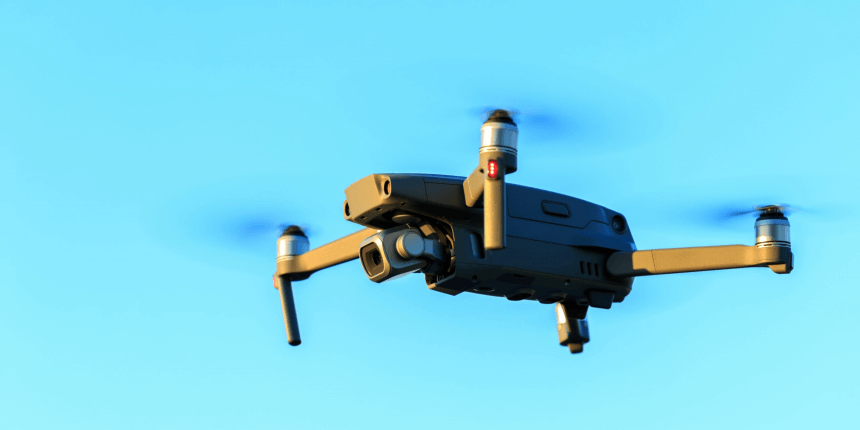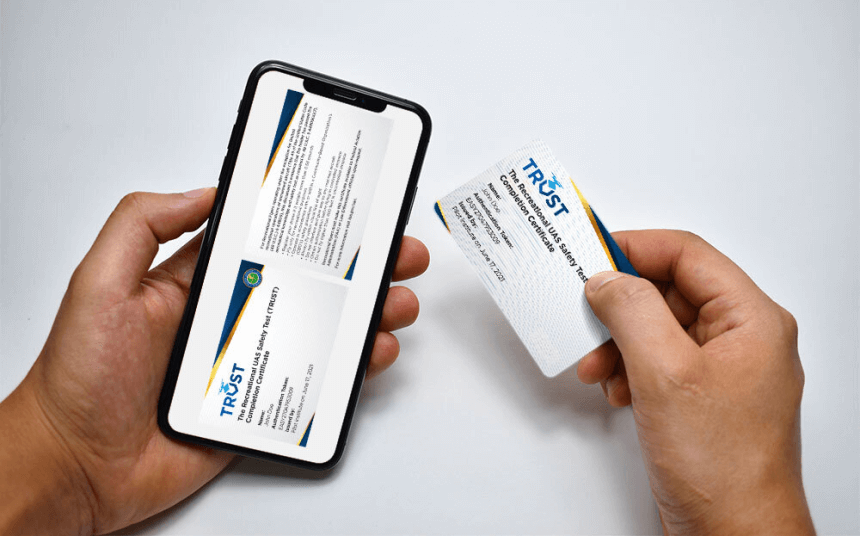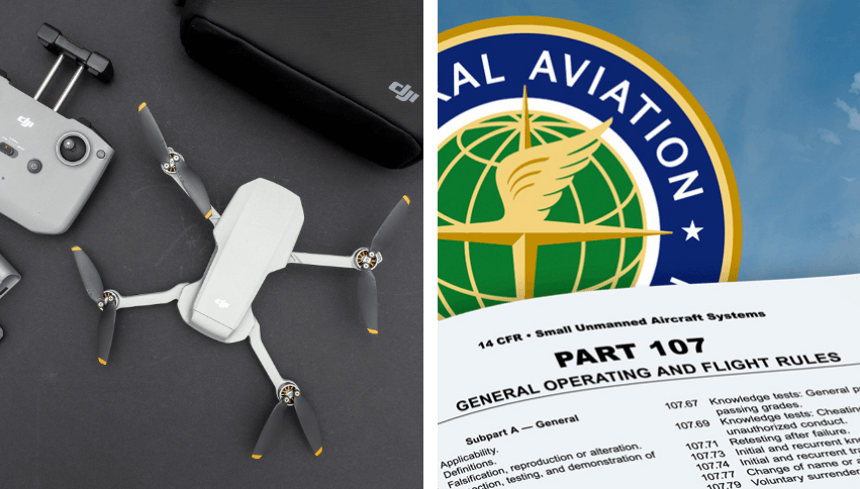The State of Georgia allows the use of drones subject to the local, State, and federal laws. It helps to learn all the Georgia drone law before you get excited to explore the State’s beautiful landscape with your drone. The laws are restrictions on where you can fly and what you can film. Although drone laws in Georgia are primarily governed by the United States Federal Aviation Agency (FAA), the State’s legislature has enacted supplemental laws that are specific to drone operations in the State.
This article looks at all the laws that regulate drone operation in Georgia. We explain everything you should know before flying a recreational or commercial drone for fun or work in Georgia so you don’t find yourself on the wrong side of the law.

The FAA is the agency responsible for regulating drones in all the States in the US. It sets the rules to regulate drone operations. Besides controlling who can fly and where to fly, the FAA also promotes drone safety by providing educational resources.
The agency also investigates all reports on unsafe and illegal drone operations. You must learn all the FAA laws before operating a drone to avoid serious penalties.
Some common penalties for violating drone laws in Georgia include:
Seizing a drone is one of the ways in which the FAA enforces drone laws. In most cases, the agency will take action against a violator after receiving a complaint from another person that you were using your drone in an unsafe or disruptive manner.
You may face civil penalty if your drone operations endanger people or property. The civil penalty may be a hefty fine. What’s more, you may be required to pay for damage if your drone causes harm to someone or property.
Operating your drone in an unsafe and disruptive manner can land you in jail. Ensure you are familiar with all the drone rules and penalties for violating them before flying. Avoid all the no-drone zones in the State and beware of your surroundings when flying to avoid trouble.
Before you set out to fly a drone anywhere in Georgia, familiarize yourself with these crucial rules:
Other drone use laws by the State of Georgia include HB 481 Aviation; unmanned aircraft systems
This law regulates drone operations on public property and prohibits local governments from making UAS regulations since April 2017.
These are drone laws enacted and implemented by the counties, cities, and towns in Georgia.
Augusta Richmond County
Cherokee County
City of Conyers
Stone Mountain Park

The registration requires your name, address, an email address and a registration fee of $5. You must create a user account with the FAA, and after successful registration, you get a registration number. According to the FAA laws, you must mark your drone with the registration number assigned to you. Place it on the outside of the drone, where it can be seen easily. The registration is valid for three years and must be renewed upon expiry.
The FAA also requires all recreational drone pilots to take the Recreational UAS Safety Trust Trusted Source What is TRUST? The law requires that all recreational flyers pass an aeronautical knowledge and safety test and provide proof of passage if asked by law enforcement or FAA personnel. www.faa.gov (TRUST). The test provides education and testing on critical safety and regulatory information. You can do the test online through any of the FAA-approved test administrators Trusted Source List of FAA Approved Test Administrators Test administrators will not keep a record of your certificate. You must present a copy of your certificate if asked by law enforcement officers. www.faa.gov . The test is free, and all the questions on it are correctable to 100% before submission. Download, save, or print your completion certificate once you are done with the test. You will have to retake the test if you lose the certificate.
The general rules for recreational drone flying in Georgia include the following;
Do you need a beginner-friendly drone for recreational flying and need help choosing one? Consider the popular Holy Stone HS720E. It is super-easy to use thanks to its intelligent flight modes and a decent flight time of 46 minutes.

The Remote Pilot exam is not hard, but you must prepare well for it to earn qualifying marks. It consists of multiple-choice questions about topics like flight operations, aviation weather, and flight operations regulations.
Do you need a budget-friendly drone but have no idea what to pick from the sea of options? Read our article on the best drones under $600 for a detailed buying guide and a product list with powerful models that offer excellent value for money. The DJI Mini 2 is a perfect example of a powerful drone under $600. It packs a punch with a high-quality 3-Axis Gimbal 4K camera, Zoom, and Quickshots features that give stunning shots.
The Bwine F7 night vision GPS drone is a great alternative with a similar 3-Axis Gimbal 4K camera and better wind resistance.
If you have the budget for a higher-end, yet affordable drone, check out our article on the best drones under $2000 for unmatched options.
After choosing a drone that fits your needs and budget, read on how to program a drone to make the most out of it.
Drones help law enforcement agencies to police more efficiently. Drones come in handy in taking photos of traffic crash scenes, monitoring correctional facilities, tracking prison escapees and controlling crowds among other things. They are also great for gathering information in dangerous situations while saving money and manpower.
According to AP News Trusted Source Georgia city adopts drone response program for police FAA-approved test administrators Drones will be used to respond to 911 calls in one Georgia city, with Brookhaven becoming the first in the Southeast to adopt a first responder program using the devices. apnews.com , Georgia city adopted a drone response program for the police. Brookhaven was the first to use the devices to respond to 911 calls. Each drone is equipped with a camera for recording and streaming HD video to the department’s crime center. A police officer in the crime center can relay information to other police on the ground. Moreover, the drones have thermal imaging for spotting suspects at night.
Other city police departments use drones to gather information in potentially dangerous standoffs, but Brookhaven’s program is different as it has increased drone usage, including real time emergency responses and first-time 911 calls.
Learning all the drone laws in a State, County, or City before flying is crucial. Breaking any of the laws may lead to heavy fines, jail time, or the loss of your drones. The drone laws in Georgia are similar with other US states’ laws enacted by the FAA. However, the State has drafted specific laws that govern drone use in various parts for both recreational and commercial drone pilots.
Drone flying laws in Georgia require every drone operator to register their drone and fly under Part 107 rules or have a TRUST exam certificate of completion.
You can access all the information about Georgia’s drone laws on the FAA website of through the B4UFLY mobile app. The app has more useful resources that can help you understand drone flying laws and requirements for different states.